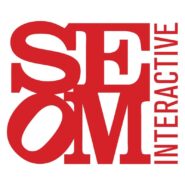Buy.ology: A Book Review by Emily Murphy
Did you know that soon, advertisers may be able to look into your brain? Well, not actually, but neuromarketing is just about the closest thing.
Did you know that soon, advertisers may be able to look into your brain? Well, not actually, but neuromarketing is just about the closest thing. In “Buy.ology: The Truth and Lies About Why We Buy,” Martin Lindstrom breaks down his 3-year, 2,000 person study into to some key findings about how our subconscious controls us more than we think. Everything is not always as it seems when it comes to qualitative research, and Lindstrom is here to show that sometimes, what we say we do and what we actually do can be complete opposites. Listen to my full review of “Buy.ology” below.







I’m reading Small Data for another class as well and I definitely agree with on some of Lindstrom’s methods. He tends to go off on random tangents and tells you things that everyone knows. I wonder if there was more to the story with the Tiffany blue box than what he said. Did the women think they were getting jewelry or was it simply the color that got them excited?
How a mother-daughter relationship in India determined the perfect color for a cereal box… now that is not something you hear every day. Lindstrom seems beyond fascinating I would love to see how he uses the technology to observe how the brain reacts to different advertising techniques. I am so intrigued… THAT IS SO COOL! I hope one day more companies will have the resources to do that… It’s like focus groups on steroids, I love it and I appreciate the various studies he gives with the backup it is so exact.
I wanted to read this book, so I’m glad someone else read it. Lindstrom is an excellent qualitative researcher who really understands consumers and how to help companies flourish from his findings. It’s really interesting that a person could say that they hated something or reacted disgusted towards it, but their brain showed otherwise in the MRI machine. And the Tiffany Co. example was interesting because I react the same exact way when I see a tiny blue box that looks like the signature Tiffany box.
I think this book would be interesting to read, especially with how it analyzes the complexity of the subconscious. Neuromarketing seems as though it gets the real answers out of people, rather than a surface level answer. I found it surprising that the show went on to be a success after almost all 200 people said it would not be, they used the study and trusted those results. I agree with you that neuromarketing could be the future of advertising.
Buy.ology seems to confirm everything I’ve believed about how humans brains work. I particularly loved the television show example, that highlighted how we really don’t know what we want. I can think of plenty of shows that I, or others hate yet get great ratings. Although I am usually hesitant with brain science in general, Lindstrom proves his point with his experiences.
I’ve never heard of neuromarketing before this podcast. I think there is something to his studies because what we think and how we behave can be complete opposites. From my experience with market research, I can comfortably say not all participants can articulate how they feel. This type of MRI scanning can confirm or deny people’s perceptions and I can foresee it becoming a tool of the future.
Wow, this book sounds great! I definitely want to check it out. I’m always a fan of scientific related studies and research relating back to advertising research because they have interesting parallels. I’ve never heard of neuromarketing but I feel like it would be cool to see it in action during the qualitative research process.
Neuromarketing fascinates me. I believe that consumer behavior goes hand-in-hand with neuromarketing, and both these fields HIGHLY interest me and are something I want to explore post-grad. Your podcast is very interesting and honestly, Buy.ology is next up on my non-fiction reading list. The Tiffany box study is intriguing… consumers brains can tell us so much about non-verbal thoughts. Though not always useful, the insights garnered can certainly lead to developing top brand strategies.
I found this podcast and Lindstrom’s ideas to be so intriguing. It seems that a common takeaway from marketing books is that through qualitative research, consumers may not be telling you exactly what they think, because they don’t know what they think. So think neuromarketing approach is super interesting to me as it’s a “solution” to said issue that I have never heard before. I think it’s interesting that even when literally watching what people are feeling, you still may not be getting accurate information on what influences people. It just shows how difficult marketing/advertising really can be!
Lindstrom? I read his small data book as well! His studies are always interesting and the methodology he uses to complete his research are pretty fascinating. The tobacco example is cool to me as I would’ve thought otherwise, by looking at gross images of cigarette damage I would think most people would be grossed out and not want a cigarette. I wonder if neuromarketing will gain more popularity in the ad/marketing space as brands are trying more and more to tap into the minds of consumers. Sounds like a good book!
I’m always a little skeptical about the psychology behind advertising and the decisions we make when it comes t brands. I think this is just because I’m so interested in philosophy that psychology is kind of like it’s natural nemesis. Regardless, I do think that sometimes people make decisions unconsciously, whether it be because they have implicit biases towards a product (like tobacco) or because certain colors stimulate their senses and emotions. This idea is definitely interesting to me and I will probably check this book out in future – especially because Lindstrom has written some other texts that I really enjoy! Great podcast!